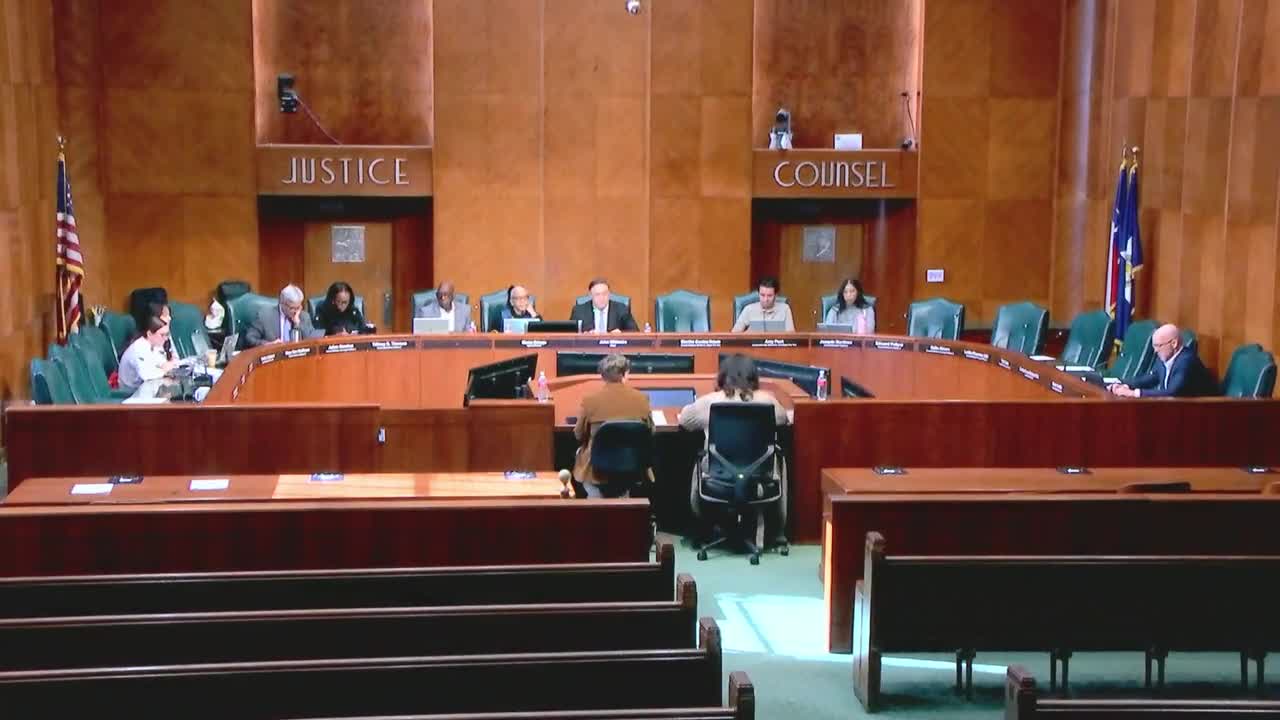City presents update on financial policies, tax-abatement and Chapter 380 programs
Get AI-powered insights, summaries, and transcripts
Subscribe
Summary
Assistant Director Jennifer Curley of the Mayor's Office of Economic Development presented an update to the committee on Houston's financial policies and incentive programs, including the tax-abatement and Chapter 380 programs, and described reporting and compliance requirements.
Assistant Director Jennifer Curley of the Mayor—s Office of Economic Development presented an update to the city—s financial policies to the Houston City Council Economic Development Committee, describing the reporting framework for incentive projects and the current status of tax-abatement and Chapter 380 agreements.
Curley told the committee that "the mayor's designee shall report annually to the economic development committee detailing the progress of each active project in which the city has provided an incentive through the tax abatement and chapter 380 programs" and that those reports must be published on the city's website within 30 calendar days of presentation to the committee (00:03:04). She said the city's financial policies were originally codified by a 1987 ordinance and are updated through the annual budget ordinance.
On the tax-abatement program Curley summarized that the program was established in 1988 and is located in Chapter 44, Article 4 of the Houston Code of Ordinances. She noted it is guided by state law, including a requirement that local tax-abatement guidelines expire every two years and that individual agreements be limited to 10 years. Curley said the most recent guideline amendment was made in August. She showed the committee a list of nine active tax abatements and said this is the final year for several agreements, including Energy Property Partners, UPS and The Kroger Company.
Curley explained the compliance and reporting mechanics: the city—s presentation compares the market value at the time an agreement was executed to current market value and projected remaining term, and job and investment figures reported in the city—s compliance table come from company filings certified to the Harris County Appraisal District (HCAD). She described the jobs columns on the compliance slide as showing jobs committed in the agreement versus jobs reported as actual on the HCAD filing; Kroger, she said, received a reduced reimbursement because it fell short of its committed job numbers (00:20:10).
On Chapter 380 agreements Curley recapped that the program (ordinance 1999-74) reimburses public infrastructure or helps leverage state economic-development programs and typically reimburses from incremental tax growth tied to the project. She said the city has begun negotiating community benefits into some Chapter 380 agreements and cited examples in the packet, including White Oak Music Hall, Westheimer Ranch and Meow Wolf.
Councilmembers questioned staff about evaluation and verification of company-submitted numbers. Committee members asked whether the city performs due diligence beyond checking ordinance thresholds and whether the city audits companies— asserted investment amounts. Curley and staff said the city relies on the HCAD-certified filings and on the agreement—s compliance provisions: if a company fails to meet commitments, reimbursements are reduced or withheld.
The presentation also noted the city can nominate companies for the Texas Enterprise Zone program (a state program) and that Houston has nine nominations per state biennium. Curley said Harris County may only nominate a project through an interlocal agreement with the city in which the project is located.
The committee did not take a formal vote on policy changes at this meeting. Staff offered to provide additional detail where available, including parking-space counts for community-benefit commitments and further breakdowns of wage and payroll metrics tied to abatements. The presentation concluded with staff offering to return with specific clarifications requested by councilmembers.
Ending: The committee set subsequent public hearings and staff follow-ups through the regular council process; no final legislative action on amendments to the financial policies was taken at this session.
